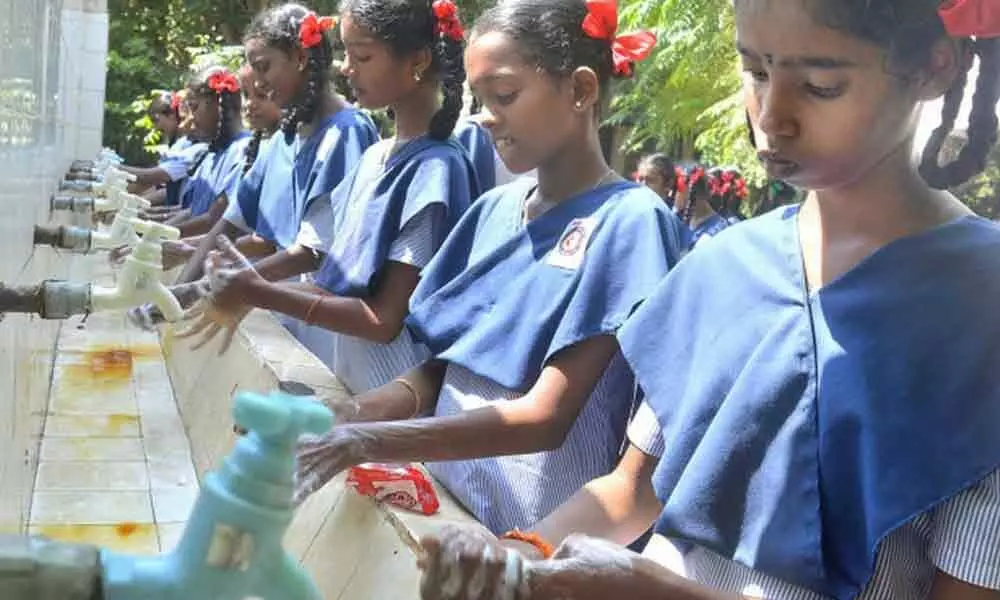Hyderabad: Sensitising children on personal hygiene
 Children on personal hygiene
Children on personal hygieneAs part of the Sustainable Development Goal (SDG), hygiene education is being imparted to 1.2 lakh children in States of Telangana and Andhra Pradesh
Hyderabad: As part of the Sustainable Development Goal (SDG), hygiene education is being imparted to 1.2 lakh children in States of Telangana and Andhra Pradesh. The initiative, Dettol Banega Swachh India (DBSI) is aimed at improving knowledge, attitude and practices on WASH among schoolchildren. The core activity of the programme is personal hygiene, handwash, safe drinking water and clean toilets as stated in WASH Programme of Govt of India and UNICEF.
The Reckitt Benckiser India Ltd, a promoter of Dettol handwash, as part of its nationwide campaign DBSI, has initially commenced the activities during 2015-16 in 800 primary schools in the twin Telugu states through Collective Good Foundation (CGF), a Mumbai-based NGO that works on WASH aspects. The NGO is scaling up its operations to about 3,000 schools with a coverage of 20 lakh children by 2019-20.
Ravi Bhatnagar, director, Reckitt Benckiser for Asia and Middle East, says, "Simple behavioural change practices with different set of activities for the children go a long way." As part of the programme, CGF has trained 3,100 teachers of primary schools, school management committees and staff of Samagra Shiksha & Education department of seven districts of Andhra Pradesh and 10 districts of Telangana by providing teacher learning manuals, student workbooks through participatory methods and play way tools and kits to understand the concepts.
In the current scenario of Coronavirus, almost the entire world is stressing on the need for handwash as the first step to safeguard self besides other social practices. The DBSI project started in 2015 in partnership with CGF in two Telugu states has taken a lead in inculcating the change in behaviour among lakhs of children and the communities they live.








